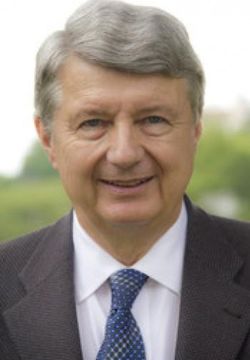Bruce Cain - Energy Governance in California: CCAs and their Consequences

California’s Community Choice Aggregators (CCAs) allow a local government to form a load serving entity to compete for retail customers and electricity supply with the investor-owned electric utility that operates within its territory. In theory, CCAs could reduce the costs and/or enhance the speed of decarbonization of electricity supply. In reality, a flawed market design, the transfer of regulatory burdens from the IOUs to the CCAs, and the wide variability in California community capacities and motivations imperil the achievement of either goal. IOU ownership and economic regulation of distribution and transmission have effectively eliminated meaningful price competition. Transferring the responsibility for long term contracts and system reliability from the IOUs to the CCAs essentially creates a ceiling on the greenness and a floor on the price of CCA power. And devolution of electricity procurement to local communities that differ in the intensity of preferences for green energy, local investment in generation, and lower end-user prices results in wide variation in energy portfolios and financial stability among CCAs. We call this energy sorting, i.e. a self-selected grouping of local energy consumers by income and commitment to decarbonization. This has important implications for deep decarbonization because CCAs in many communities bear much of the responsibility for designing and implementing residential, transportation and commercial electrification programs. Some of these problems, such as finding the right scale for CCAs through the creation of joint power agreements, are being solved. Others, such as problematic regulation of the relationship between IOUs and CCAs will require more serious efforts at reform.
Bruce E. Cain is a Professor of Political Science at Stanford University and Director of the Bill Lane Center for the American West. He received a BA from Bowdoin College (1970), a B Phil. from Oxford University (1972) as a Rhodes Scholar, and a Ph D from Harvard University (1976). He taught at Caltech (1976-89) and UC Berkeley (1989-2012) before coming to Stanford. Professor Cain was Director of the Institute of Governmental Studies at UC Berkeley from 1990-2007 and Executive Director of the UC Washington Center from 2005-2012. He was elected the American Academy of Arts and Sciences in 2000 and has won awards for his research (Richard F. Fenno Prize, 1988), teaching (Caltech 1988 and UC Berkeley 2003) and public service (Zale Award for Outstanding Achievement in Policy Research and Public Service, 2000). His areas of expertise include political regulation, applied democratic theory, representation and state politics. Some of Professor Cain’s most recent publications include “Malleable Constitutions: Reflections on State Constitutional Design,” coauthored with Roger Noll in University of Texas Law Review, volume 2, 2009; “More or Less: Searching for Regulatory Balance,” in Race, Reform and the Political Process, edited by Heather Gerken, Guy Charles and Michael Kang, CUP, 2011; “Redistricting Commissions: A Better Political Buffer?” in The Yale Law Journal, volume 121, 2012; and Democracy More or Less (CUP, 2015). He is currently working on problems of environmental governance.